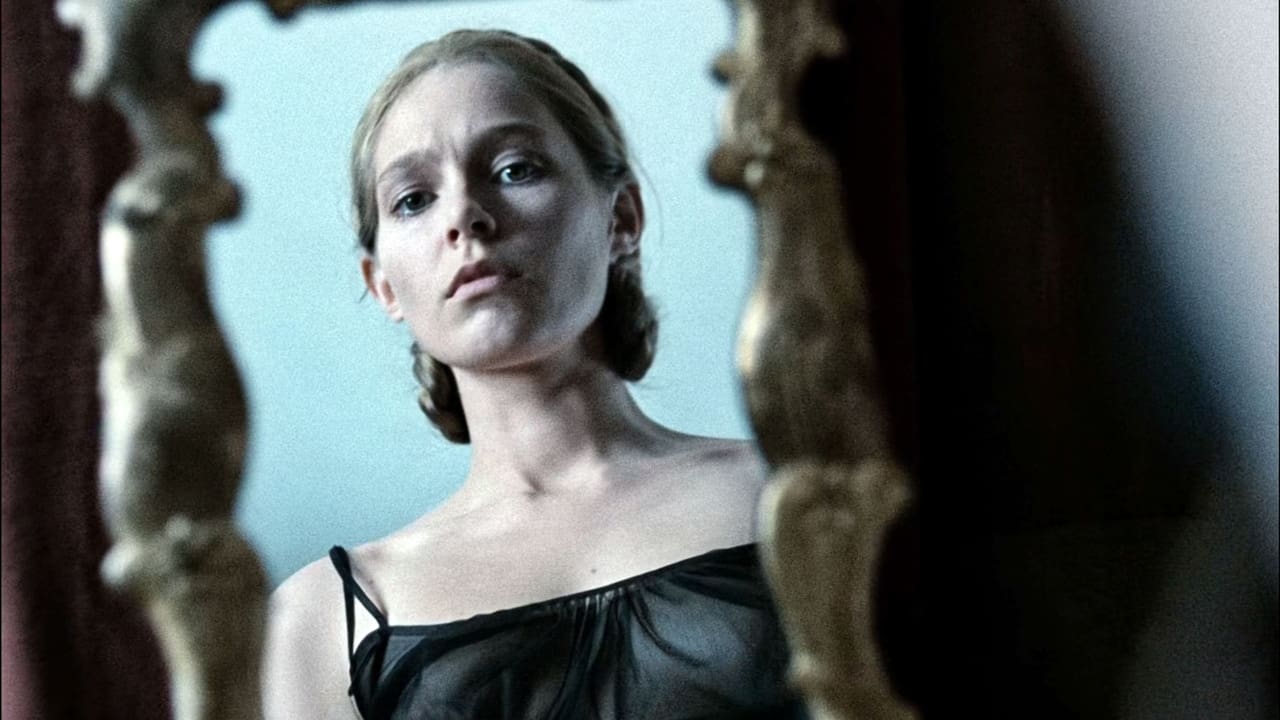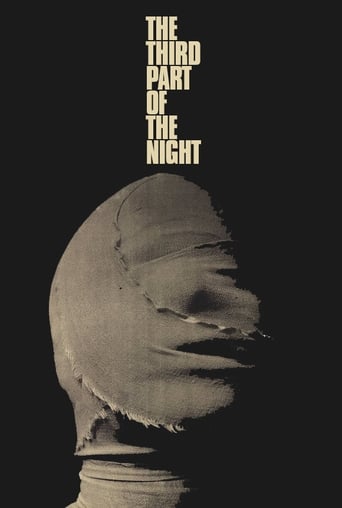Diagonaldi
Very well executed
Stevecorp
Don't listen to the negative reviews
Kamila Bell
This is a coming of age storyline that you've seen in one form or another for decades. It takes a truly unique voice to make yet another one worth watching.
Guillelmina
The film's masterful storytelling did its job. The message was clear. No need to overdo.
AgentSniff
I have watched into the void and it's filled with lice. The Third Part of the Night has been described as many things, but HORROR is the one word that makes justice to it. The one thing mostly remotely like it are the Silent Hills games and Come and See. At first I could not tell that the film was set in WWII, but when it became apparent to me, the riddle of the film also became apparent. Most of the film is actually a rather straightforward film, but the way the events are realized it becomes a surreal vision of the end of the world. I have trouble describing it other than a disturbing nightmare about the end of time. A furious debut of a filmmaker, possessed by the Gods of film, who summon a town beyond space, time and hope.
chaos-rampant
I don't like to treat movies as simply fictions to pass the night, that way lies the habit of simply partaking of culture. The whole point is that we're roped in life by forces that have significance for us - and if film is to be a truthful reflection, it will devise ways to portray this pull, turn it into something we can see.This is how I welcome Zulawski. It's not because of what he has to say or because themes might be important, here Polish life under Nazi horrors. Similarly I don't reject him because stories are muddled or the acting is hysteric. I welcome him because he can use the eye of the camera to rope forces that move us.On the surface this is a glimpse of anguished life during WWII, but not the mock historical type that seeks to enshrine bygone events in pious ceremony. This is one that speaks very much about anxiety that haunts the soul now in this very life, rending the air with dread and confusion. Horror that is very much present and didn't go away with the war but still lingers. He would rail - more or less covertly - against a repressive Soviet regime in later films as well.So he's angry with god that won't manifest, he shouts dejection at a broken state of things, everything he would become known for is already present here, fully formed as template. But no answer can be found in the mind that despairs and clamors and none would suffice to explain anything. No his power is that he can show these things truthfully for what they are, confusion as confusion, ignorance as ignorance. So of course the narrative becomes oblique, muddled, sense takes flight and we're left with fragments.He's still striving to burst forth here, not yet channeling madness through the eye to alter how we see. That would come to him in due time. But everything you need to know about him you'll see in the very beginning of this first film.A man's wife and child are taken from their house one day and murdered in the yard; evil that swoops over this world and wrecks lives. He joins the resistance and immediately people are chasing after him and shooting to kill him, agents of that evil. So he hides in an apartment building and by a chance turn of fate, police arrest someone else in his place, someone with the same color of coat who was going up the stairs to a pregnant wife. In a stunning turn he helps the wife give birth, becoming the husband who was taken away.Jancso and Tarkovsky were previous masters of the floating eye who could maintain equanimity in the face of horror and misfortune; he is ruptured by it, splintered in selves. But it's still the same deep roar from the engines of consciousness that propels him.
tomgillespie2002
Remarkably, this was Polish director Andrzej Zulawski's debut feature. Coming from a family full of actors, directors, poets, writers, and general great thinkers, Zulawski strides into this film with confidence, focus and a craft that takes the majority of directors years to perfect. I was interested in this film after reading about the rather strange plot line, and having a keen interest in Polish cinema, notably the work of Roman Polanski and Andrzej Wajda. And I'm pleased my I followed my curiosity, as the film is a hypnotic and nightmarish piece of cinema that encourages discussion, interpretation and repeat viewings, something that I find with only a few films, especially straight after the first viewing.The film begins in a remote countryside house in Nazi-occupied Poland, where Michal (Leszek Teleszynski) stays with his wife and children, until the Nazis come along a murder everyone while Michal lies hidden in the woods. He journeys back to Lwow where he joins the resistance, almost instantly being tracked down and almost murdered. He manages to escape when the pursuers mistake an innocent bystander wearing similar clothes to be him and shoot him dead. Michal comforts the dead man's wife, while noticing that the mysterious woman bears an uncanny resemblance to his own dead wife. Being a typhus sufferer, Michal decides to put his misfortune to use and earns money becoming a lice feeder, strapping small boxes full of the bloodsuckers down his legs to let them feed, which are later used to develop a vaccine.What stems from the relatively normal opening scene can only be described as a chaotic descent into instability, as the story moves along slowly and confusingly. The decision to use the same actress (Malgorzata Braunek) to play multiple roles is never clearly explained or made clear. The obvious and initial reason would apparently be the inability of Michal to let go of his wife's death, seeing her everywhere, but as the film goes on, you wonder about the mental stability of our hero, or even ponder if this (or indeed the whole film) is just a product of his typhoid-addled brain. Scenes randomly blend into the next, and you have no idea where the film is going or will end up. It is truly a mentally tiring experience, and all the better for it.Zulawski seems to be fascinated with lice and the feeding process that the film depicts. He films in close detail, with some effectively loose- hand held work, how the lice are packed together in a tiny box, with a mesh screen in place to allow the creatures to feed through. Later, during the vaccination process, we are treated to a microscope POV of the lice being carefully placed on a petri dish one by one, only to be torn open by a pair of tweezers to extract their infected blood. Do the lice represent our protagonist, or the nature of the human race? Or perhaps it's a commentary on the war and the destruction of the Nazi party? No answers are clear with the film, and is best enjoyed as an interpretive piece of art cinema. I use the word 'enjoy' loosely, as when the climax approaches, it almost becomes a piece of psychological horror, one that genuinely disturbs in a way that only a true artist can achieve.It will not appeal to everybody, but no matter what your view or opinion, it will no doubt have a profound effect on the emotions and the brain, and will linger for a long time.www.the-wrath-of-blog.blogspot.com
fred-83
Just watched the excellent Second Run DVD release of this film, and I was not disappointed. He must be one of the most underrated directors alive at the moment. In each of his movies (I have only seen two others) he manages to create an amazing cinematic velocity, you are not sure about the meaning and of the plot twists, but you are defenseless against the intensity of the camera-work, editing, performances and staging. He uses film in the way I usually find most interesting, to convey dream states and give fragmented views into other worlds, in that sense he is like Bergman when he was at his best. I can't help comparing the two since Bergmans recent passing and my seeing this film happened almost simultaneously...Watching this film is like experiencing someones nightmare, based in a gritty reality but at the same time far removed from it, and also managing to convey political issues in a non-realistic way. Which is the way I prefer, not ramming it down the audiences throats, but keeping it in the subtext for you to explore if you want.

